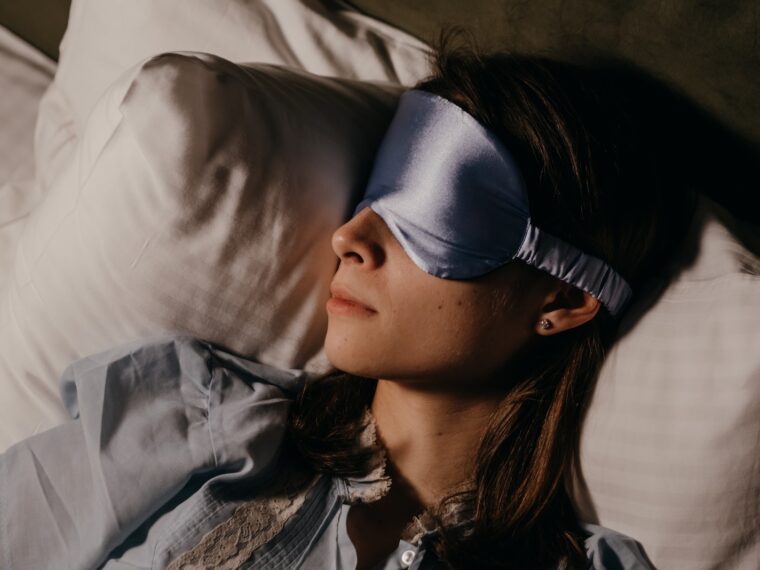Deep sleep, the third stage of non-rapid eye movement (non-REM) sleep, typically lasts 70 to 90 minutes in standard cycles and lasts 70-90 minutes during which your brain waves slow and heart rate decreases, making it very difficult for anyone else to wake you up during this stage.
Gaining enough restful, deep sleep can help you feel rejuvenated and refreshed as you face each new day, but sometimes this can be difficult to accomplish.
1. Avoid Alcohol and Caffeine
Alcohol or caffeine at bedtime may help you relax, but it won’t guarantee an uninterrupted night’s rest. People who ingest either substance are more likely to experience insomnia and other sleep-related difficulties.
Alcohol acts as a sedative, meaning it will make you sleep quickly but prevent your body from reaching deeper and REM (dreaming) sleep stages. Furthermore, having alcohol in your system could cause frequent awakenings during the night as it disrupts your normal wake-wake cycle.
Sleepless nights may leave you exhausted and groggy the following morning, as well as longer-term issues with your sleeping patterns. Furthermore, they increase your risk of parasomnias – disruptive sleep disorders which affect specific stages or transitions during slumber – making recovery from them harder than anticipated.
If you need something to drink before bed, opt for water. Caffeinated beverages like coffee and tea should be consumed at least four hours prior to sleep time; alternatively try soothing beverages, such as chamomile tea. Both will promote restful slumber.
2. Change Your Sleep Environment
Your bedroom can play an essential role in helping you sleep deeply and comfortably. To do so, it should be dark, quiet, and relaxing – noise from outside or other people in the house should not disturb it either.
Temperature can have an enormous effect on sleep quality. If it is too warm in your bedroom and body, it will be difficult for you to fall into deep restful slumber. Your bedroom should be cool but not freezing cold if possible.
Limit the amount of blue light entering your bedroom before bed. Prolonged exposure to blue light can suppress melatonin production and keep you awake, so using a sleep mask or dimming room-darkening curtains or blinds may help limit exposure to this light source. Finally, exercise is key – exercise releases endorphins which promote relaxation and ease into deep sleep at night while simultaneously relieving stress and anxiety that prevent proper restful slumber. By following these tips you’ll increase how long you spend in slow wave sleep (deep sleep). Your Orua Ring will monitor how deep, light, and REM sleep cycles each night!
3. Avoid Noise
Noise can be an obstacle to deep sleep. From neighboring television sets droning incessantly to late-night busses slamming their brakes or morning birds chirping obtrusively, noises such as these can easily pull you out of deep REM cycles and leave you feeling less than refreshed in the morning.
Not all noises are equal though; for instance, if a loud noise doesn’t last too long before subsiding it may not have as much of an impactful on your sleep as, say, someone snoring nearby.
Your needs may require you to experiment with various types of sounds until you find something that helps. Some prefer white noise while others may prefer more soothing noises like gurgling streams, soft instrumental music or lullabies; there may also be sleep podcasts or stories designed specifically to promote restful slumber. Whatever causes early awakenings make sure that any possible measures are taken against it as soon as possible; you deserve a restful night’s rest!
4. Get Regular Exercise
Regular exercise releases the sleep-inducing chemical endorphins into your system, helping promote restful slumber. However, timing your workout properly is key; too soon before bed can increase heart rates and cause you to wake up during deep restful slumber.
Instead, try exercising in the morning or afternoon to wear yourself out and clear your mind. Incorporating exercise before bed may also help you fall asleep faster as well as remain asleep during stage three – the most restorative stage in your sleep cycle.
At this stage, your brain waves transition into delta waves that make waking difficult. Deep sleep is essential for muscle repair, memory processing and hormone regulation as well as helping protect you against illness while decreasing inflammation and maintaining a healthy weight.
People who don’t get enough deep sleep may wake feeling groggy and have difficulty focusing during the day, leading them down a path toward weight gain, decreased immune function and an increase risk for chronic pain and depression. If this sounds familiar to you, try some of these suggestions and see how your symptoms change over time.
5. Avoid Screen Time
Before turning in for the night, it can be all too tempting to grab your phone to browse social media, read up on the latest news or watch entertaining videos on TikTok or YouTube. Although this might seem harmless as an attempt at relaxation after an exhausting day, this activity can seriously diminish sleep quality while even altering natural circadian rhythms.
Screens emit blue lights that suppress melatonin production, an essential hormone needed for restful slumber. Their bright blue light may make it hard to get to sleep quickly or stay asleep through the night due to stimulating content which could waken you repeatedly during the night.
Establishing a screen-free zone, ideally in your bedroom, is the key to getting deep sleep at night. If you must work right before sleeping, aim for cognitively challenging tasks that don’t involve phones or computers as much – the “night mode” features of devices can also be helpful here as notifications might tempt you back out in the middle of the night! Leaving out of sight devices also prevent temptations from popping back up if something comes up during the night that makes them unwelcomed companions.




